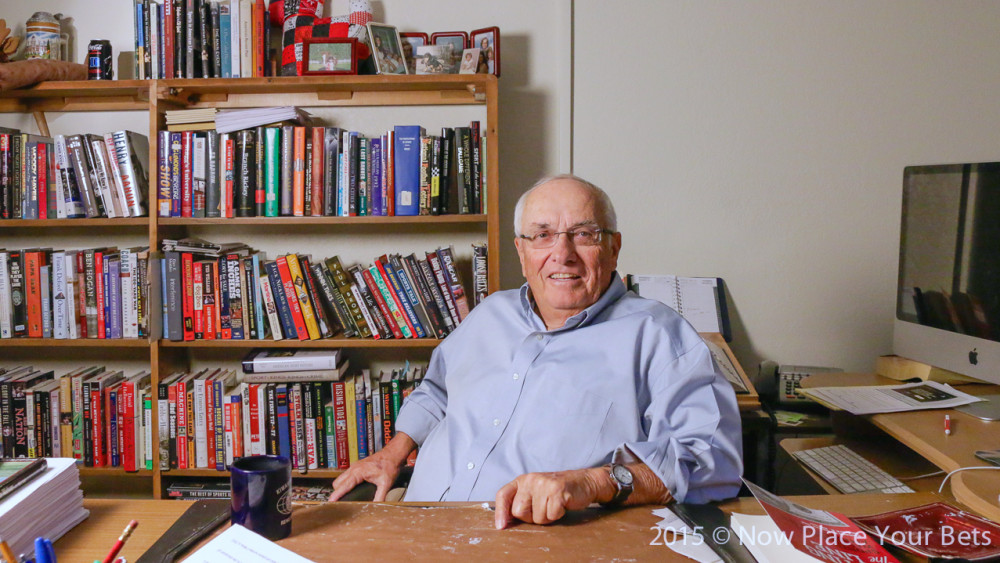Aug.20.15. Prolific author and sports historian talks to NPYB
Reno, Nevada–Today we were honored to interview celebrated historian, author and professor emeritus Dr. Richard Davies for our documentary. With 16 books to his credit (author/editor/co-editor), multiple professional awards and countless published articles, Professor Davies is the nation’s foremost historian on American sports, particularly sports gambling. In fact, his book “Betting the Line: Sports Wagering in American Life” remains the most authoritative account of the topic up to 2001, its year of publication. Professor Davies was also featured in the ESPN documentary “30 for 30: The Legend of Jimmy The Greek” produced in 2009 and available for viewing on Netflix.
Our interview covered a lot of ground on the rise of sports and gambling in American culture since the earliest settlements, the growth of Las Vegas, the transformation of sports betting venues from basic storefronts into main casino features, and America’s rollercoaster love-hate fascination with gambling. It was the lengthiest and most substantial interview we’ve done to date, and Professor Davies took all of our questions in stride and with utmost grace. His insights and extensive knowledge are a must-see for everyone!
Sep.19.15. Follow up with Joe D’Amico
0 7059 2Following up our interview with Joseph D’Amico last month, we had a chance to visit him at his office last night. As expected, the place was very well laid out and organized. The most striking feature was his impressive collection of
Feb.10.16. Super Bowl 50 with Daniel Shaver & April Renee
0 8308 13For Super Bowl 50, we were fortunate to spend two days with a lovely couple from Kansas City, Daniel Shaver and April Renee, who came to Las Vegas to wager on the big game and bask in all the excitement. Vibrant and energetic,
May.25.16. Interview with Norm Kelly
0 8288 4Veteran handicapper and sports book manager Norm Kelly joined us today for an interview, and we were truly delighted. He spoke with energy and authority on the topic he devoted his personal and professional life on–race and sports handicapping. He also offered
No Comments


